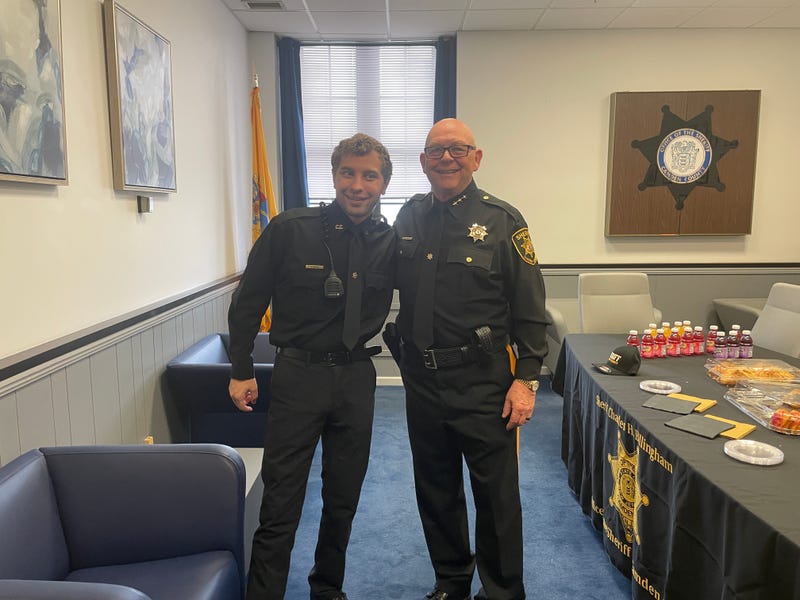
CAMDEN, N.J. (KYW Newsradio) — Camden County police officers got some first-hand experience on how to navigate an encounter with a person with autism.
Alex Mann, of Malvern, is a law enforcement autism advocate. Since 2018, he has traveled the country educating police officers about autism. To date, he has visited more than 500 police and sheriff departments in South Jersey and southeastern Pennsylvania.
“I’ve been on this mission not only to show my support to [police] but educate them,” he said. “I’ve heard stories about people being mistreated just because they’re on the spectrum, and I absolutely hate hearing that.”
The 25-year-old was diagnosed with autism when he was 3.
Mann explained to the officers that some people with autism spectrum disorder may avoid eye contact, become overstimulated by lights and sirens, or engage in repetitive behaviors, known as stimming.
He told the officers to allow it to play out, as stimming could be a person’s way of coping with the situation. If not, they may engage in a fight-or-flight response and may not want to interact with police.
Camden County Sheriff Chuck Billingham said having someone with autism explain some of their traits is helpful.
“Sometimes we get these trainings and it’s almost clinical,” he said, “but when the officers get to see a face and hear a voice and see actions and are able to tell you what their personal issues may be, then you know that there’s folks with other issues, so you’re much more aware of that.”
Sgt. Michael Casey said learning this was invaluable.
“Just because you look at somebody, you may not be able to tell that they have some things,” he noted. “He has issues with noise — that’s not something that we can see when we just look at a person. So just taking the time to really understand somebody before you make a judgment is big.”
The training complements the recently implemented Blue Envelope Program, created to facilitate safer communication between police officers and individuals with autism spectrum disorder.
“Something like this is really critical,” Billingham added. “You’ve seen tragedies in the past that occurred when officers are less trained and don’t understand, so you can’t undercut what the value is in something like this.”
